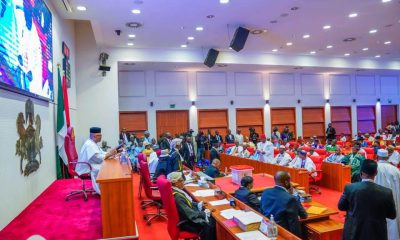Banking
Naira Crisis: CBN Stops Cash Swap Programme In Rural Areas

The cash swap programme of the Central Bank of Nigeria (CBN) has been stopped in rural and unbanked areas.
Naija News learnt that rural dwellers from unbanked areas can no longer swap old notes for the new ones through the CBN’s cash swap programme.
It was gathered that the CBN Acting Spokesperson, Isa Abdulmumin who disclosed the development to The Punch, said the programme has fulfilled its mandate and so the apex bank has stopped it.
It would be recalled that the CBN as part of its efforts to promote financial inclusion introduced the cash swap programme to give access to Nigerians in rural areas or those with limited access to formal financial services to exchange old naira notes for the redesigned notes.
The apex bank in its bid to make the programme effective had excluded mobile money/Point of Sales (PoS) agents in Abuja and Lagos, emphasising that it was meant for people without a bank account.
However, in the latest development, the CBN acting spokesman said the programme was only for a while and not for a lifetime.
Abdulmumin submitted that “The programme has stopped. The cash swap was not in perpetuity and has a lifeline.”
However, the Association of Mobile Money and Bank Agents in Nigeria (AMMBAN) has reacted to the development saying the programme before its end was ineffective.
According to the group’s National Publicity Officer, Oluwasegun Elegbade not so many stakeholders partook in the programme while noting that if the programme indeed fulfilled its mandate, the recent attacks on banks won’t have happened.
Elegbade said, “The programme has not been really effective as it should. If it worked, we would not have witnessed the number of crises that erupted across the country.
“We expected more participation as far as the swap is concerned. The operators were given control over the whole thing with little monitoring.
“Without monitoring, many of the states just did as they wanted. The CBN only set up a monitoring team in less than five states. Overall, it wasn’t an effective initiative.”












